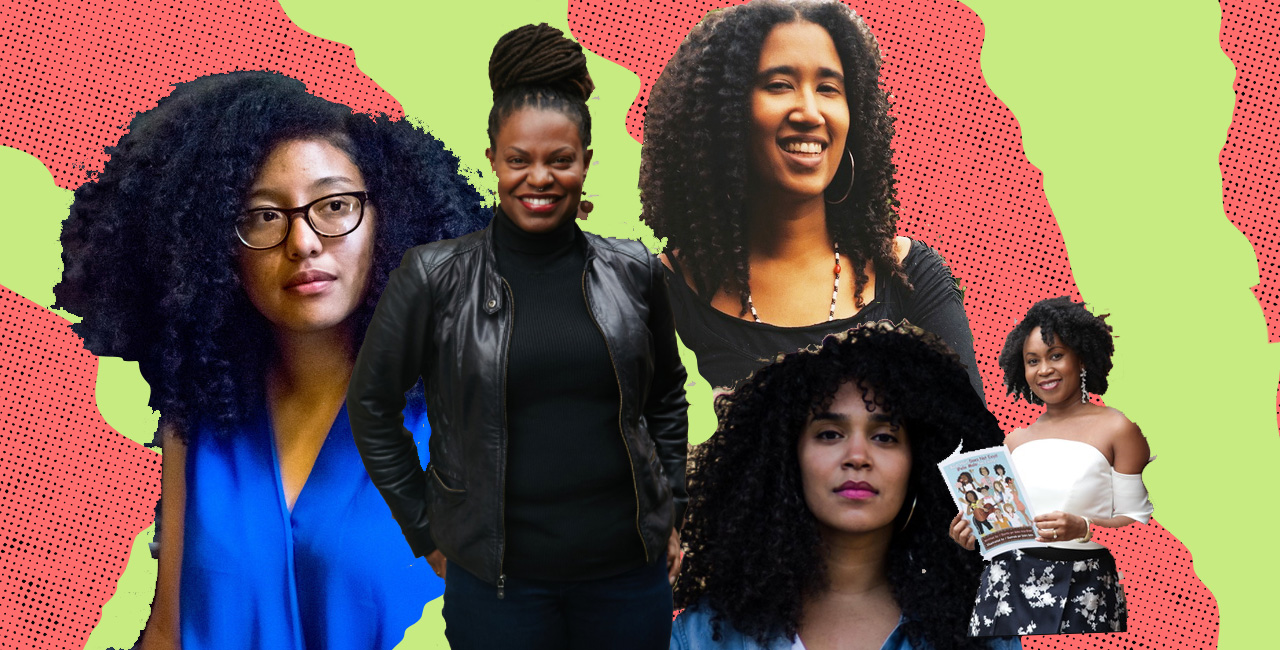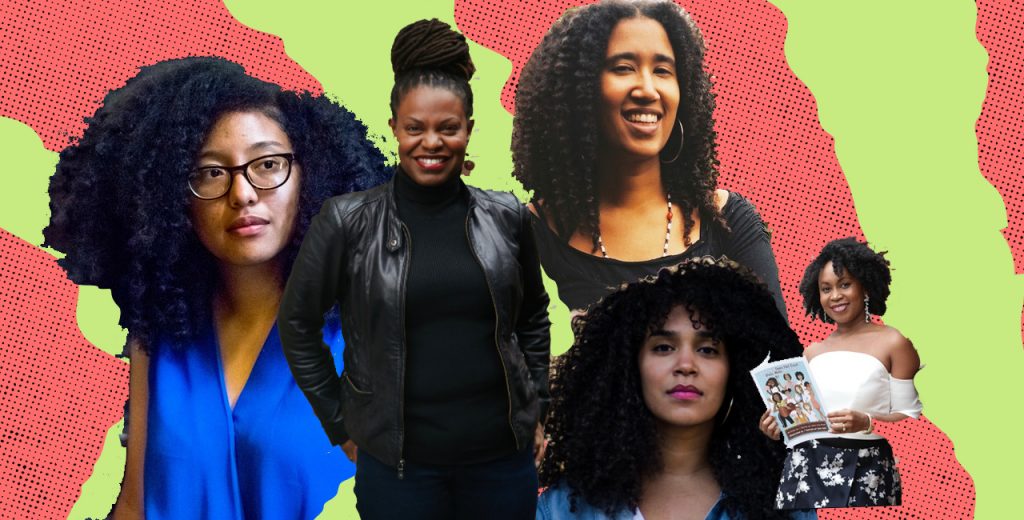Afro-Latinos have always formed part of the Latino narrative – even if they are regularly left out of the conversation. During the transatlantic slave trade, 90 percent of Africans were brought to the Caribbean and South America. Today, about a quarter of US Latinos identifies as Afro-Latinos. The term “Afro-Latino” emerged in the 1970s in academic circles to encompass those who are both Black and Latino – identities that are not mutually exclusive.
Unfortunately, you wouldn’t know much about Afro-Latinidad if you solely relied on TV, magazines, and other forms of media that often erase this group. Thankfully, we have found some comfort in books. While the publishing industry remains overwhelmingly white, there are many exciting Afro-Latino authors bringing our stories to the surface. By weaving in stories that address what it’s like to simultaneously identify as Black and Latino, they have made us feel seen and have enriched the literary world.
And while Afro-Latinidad has a rich and complex history (and we couldn’t possibly cover everything on this list), we’ve put together a list of Afro-Latina authors that will help you gain some insight. Think of this as a primer.
1
Ariana Brown
Ariana Brown is a Black Mexican poet from San Antonio, Texas. She practices curanderismo and according to her bio, has been dubbed a “part-time curandera.” Brown – who majored in African Diaspora Studies and Mexican-American Studies at UT Austin – explores her Blackness and Mexican heritage through her work, which uses powerful imagery. Many of her works are often written in Spanglish.
In her latest chapbook, Messy Girl, Brown explores heartbreak and depression. The 38-page chapbook – her longest yet – delves into one of the most difficult times in her life, when financial difficulties and breakups made things complicated.
“I hope that anyone who is struggling with mental health is able to find some kind of reflection of themselves and affirmation,” she tells Remezcla. “I hope it speaks particularly to Black women, because I think there’s a specificity to the kind of emotional violence that Black women experience in relationships often and unfortunately, and I also hope working-class folk, especially Mexican-Americans, are able to find reflections of themselves in the little details, the ways we learned to survive from our elders.”
2
Elizabeth Acevedo
For Elizabeth Acevedo, a poet of Dominican descent, telling her own stories is an “act of love and survival.” That’s probably why her debut novel, The Poet X, is exactly the kind of book she could have used growing up.
The novel follows Xiomara, a teen who uses poetry to escape and find herself. The 15-year-old should be preparing for her Catholic confirmation. But instead, she’s more drawn to boys, hip-hop, and slam poetry – all of which cause friction with her mother. Just like her poetry, The Poet X tackles colonialism, feminism, spirituality, and anti-blackness.
“For me, this book is saying, ‘I see you, girl who is called negra at home or at school, who has always had to choose different sides of herself. I see you, and I hope this novel allows you to see yourself,'” she tells Remezcla. “I wish 15 years ago that I had a book where I could fully see and say, ‘that’s me,’ a book that could have helped me answer questions of race and identity sooner.”
3
Naima Coster
Brooklyn native Naima Coster lives and teaches in North Carolina. Kirkus Reviews described her debut novel, Halsey Street, as the “kind of novel that swallows you alive.” The book follows the story of Penelope Grand, a young woman who is forced to return to Brooklyn after a failed career in Pittsburgh. As she takes care of her ill father, she also has to confront her estranged relationship with her mother, who abandoned the family to move back to her native Dominican Republic. All of this is set against a backdrop of a gentrifying Bed-Stuy.
In an article for Catapult, Coster proudly credits having Morgan Parker – a Black editor – to help her tell her story. When she shopped her book around, she faced difficulties because her novel didn’t neatly fit into any one category.
“Quickly, I gathered a quiet book might be problematic for the market, especially for a woman of color writing about women of color,” she wrote on Catapult. “My book couldn’t cleanly fall into the camp of books by Latina and Caribbean women that are sweeping epics spanning four generations and three continents. There could be no palm tree on the cover. There would be no magic. It’s a book about memory and trauma, painful feelings and mental health, sex and drinking, art and anger, feeling stuck but wanting to be free. When quiet was levied at my book like a publishing-industry-insider’s curse, I felt baffled – and pissed. I could rattle off several books written by and about straight white men that were quiet, inward-looking, steeped in the self.”
4
Sofia Quintero
Self-proclaimed “Ivy League homegirl” Sofia Quintero has published urban fiction under the pen name Black Artemis. Her YA fiction explores the lives of Afro-Latino teens in the South Bronx.
Under her own name, she publishes book that fall into the “chica lit” category. And though some may take offense with the term, Quintero fully embraces it. “For some writers, especially white women novelists preoccupied with having their work deemed ‘serious fiction’ by the establishment, calling other women’s commercial fiction ‘chick lit’ or ‘chica lit’ is the literary equivalent to slut-shaming,” she told Latina. “I’m a Latina novelist writing commercial fiction that centers Latinx characters, their relationships, and issues, and I won’t apologize for it. Whenever someone dismissed chick lit as superficial or even anti-feminist, they tell on themselves. It’s obvious they’ve never read any chick lit by women of color, so they can have a stadium of seats.”
5
Aya de León
Aya de León writes both poetry and prose and serves as the Director of June Jordan’s Poetry for the People. De Leon’s debut novel, Uptown Thief, follows Marisol Rivera, a director of a women’s clinic that runs an escort service to fund it. De León’s gritty New York City landscapes and characters are compelling and full of wit. When writing her very political book, de León wanted it to be accessible to a large number of people.
“I wanted to make sure that anyone who could read English at maybe an eighth-grade level could get through the book and be on the journey,” she told The Washington Post.
6
Ivelisse Rodriguez
Born in Puerto Rico and raised in Holyoke, Massachusetts, Ivelisse Rodriguez is a former senior editor at Kweli Journal and a VONA/Voices alum. Her debut collection of stories, Love War Stories, look at generations of Puerto Rican girls and women in search of true love. (It will be out later this year.)
7
Sulma Arzu-Brown
Sulma Arzu-Brown, an Afro-Honduran of Garifuna descent, wrote a children’s book to challenge the pervasive “pelo malo” narrative. For many Afro-Latinas, the words pelo malo shaped a portion of their lives and even led them to hate their own hair texture. But with Arzu-Brown’s bilingual Bad Hair Does Not Exist/Pelo Malo No Existe, women of all ages are encouraged to love their natural hair.
“The book is a tool of cultural solidarity and a tool of empowerment for all of our little girls,” Arzu-Brown told NBC News. “The term ‘bad hair’ or ‘pelo malo’ is divisive to both community and family, and can contribute to low self-esteem.
8
Mercy Tullis-Bukhari
Jamaican-Honduran writer Mercy Tullis-Bukhari’s writing contain powerful and metaphoric language that explores he Afro-Latinidad. Her website reads, “Being Afro-Latina American, to Mercy, means total acceptance of self. Who she is today reflects her Africanness, her Latinidad, and being American. She validates her identity by accepting her history, and proudly accepts that being a Black woman, Latina, who is a Bronx-bre American, is the sopa marinero of all that she is today.”




